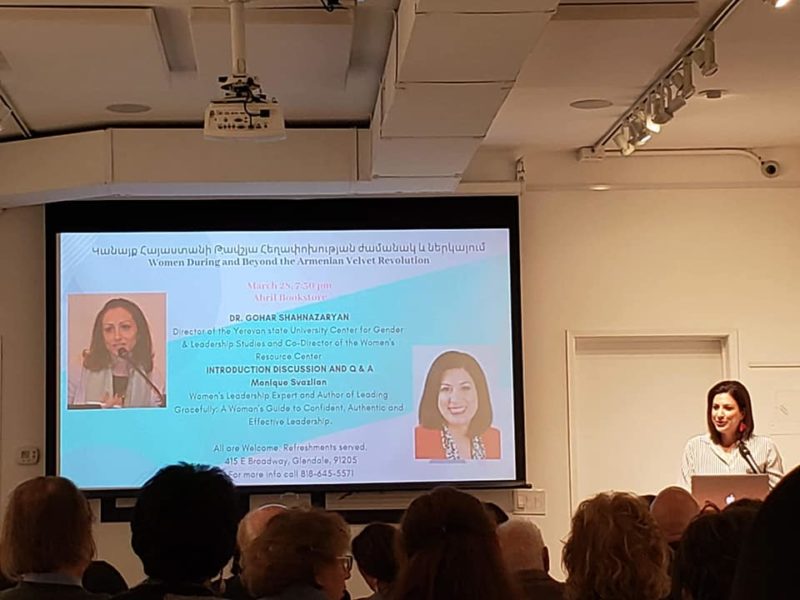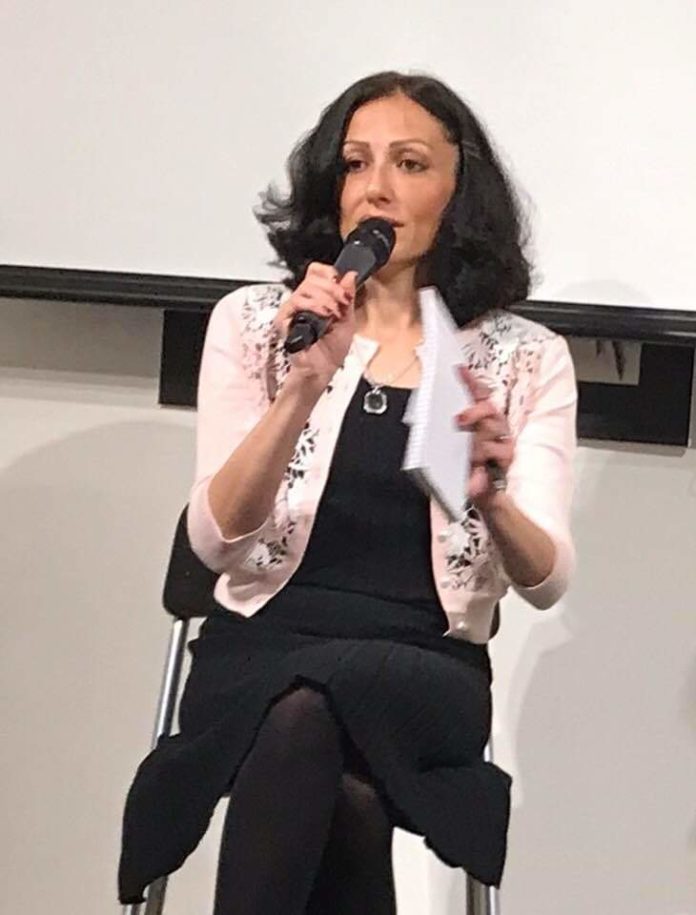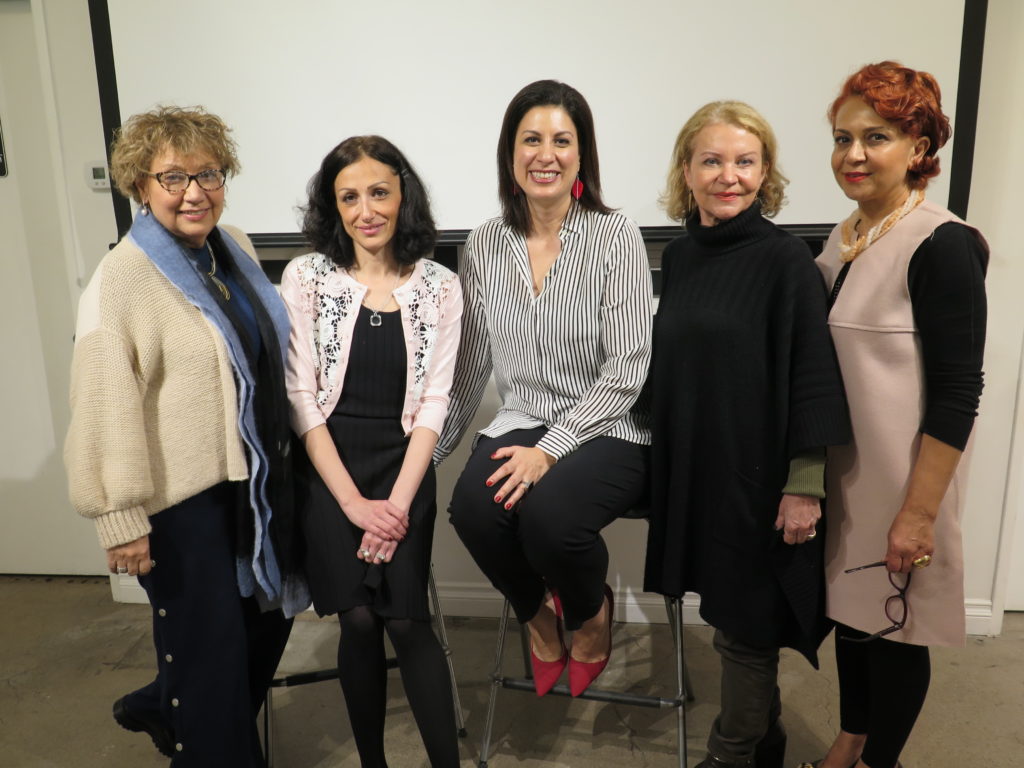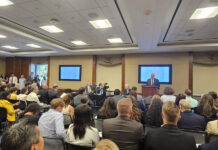GLENDALE, Los Angeles – It has been almost a year since the historic Velvet Revolution in Armenia and many of us are still wondering how our small country was able to overturn decades of corrupt politics in such a short time frame, without any bloodshed. On Thursday, March 28, at Abril Bookstore, Dr. Gohar Shahnazaryan gave a slightly different perspective on the events that occurred, specifically around the important and critical role that women played during the Velvet Revolution. The night was co-hosted and made possible by the Armenian Women’s Network.
Dr. Shahnazaryan is the director of Yerevan State University’s Center for Gender and Leadership Studies and the co-director of the Women’s Resource Center NGO in Armenia. She holds a PhD in sociology and is an associate professor at the Department of Applied Sociology at Yerevan State University.
Having spent most of her life fighting for human rights, particularly women’s rights in Armenia, Dr. Shahnazaryan spoke about the new way in which women participated in the revolution alongside their male counterparts. Women were being viewed as sisters and voicing their support of one another and their fight for equality. “I want to address my sisters who stand together, hand in hand and fight a double fight for the change of power in Armenia and for their equal rights in public,” said Maria Karapetyan, an activist and member of the Reject Serj initiative.
The uniqueness of the Velvet Revolution was that there was no bloodshed and for the most part, lacked violence or deaths. During the presentation, Dr. Shahnazaryan explained that one of the reasons for this was due to the large role that women played with their non-violent and peaceful strategies of resistance.
She shared images of young women in public spaces, occupying street crossings, roadways, and standing up to police in riot gear. For the first time ever, women were taking political spaces reserved for men and acting as strategists, organizers and active participants in the movement, as well as having discussions about gender roles and equal rights. Women were acting as moral shields, actively negotiating with police and pleading their case to keep the peace or standing in the front lines to prevent violence. Women of all ages, from young babies to grandmothers participated in the revolution in various ways, shapes or forms, whether it was young mothers standing in the streets blocking traffic with their strollers, or grandmothers marching in the streets. Women were the masterminds of the strategic actions and protests of the Reject Serj movement, often leading those demonstrations and speaking and galvanizing citizens.
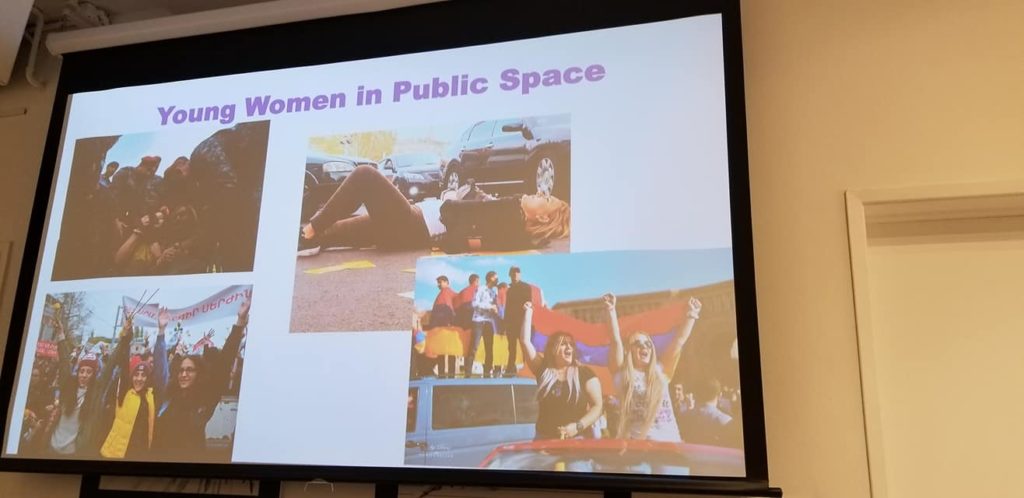
Dr. Shahnazaryan also spoke about the aftermath of the revolution and pointed out the fact that, unfortunately, the women who were so influential in creating the biggest shift in political history in Armenia during recent times did not manage to achieve gains in political representation. There is only one woman minister and out of 132 members of parliament, 24 percent are women. Although there was an increase in the number of women who ran for political office, such as for Yerevan city mayor and other regional offices, the number of women who were elected was still insufficient.
